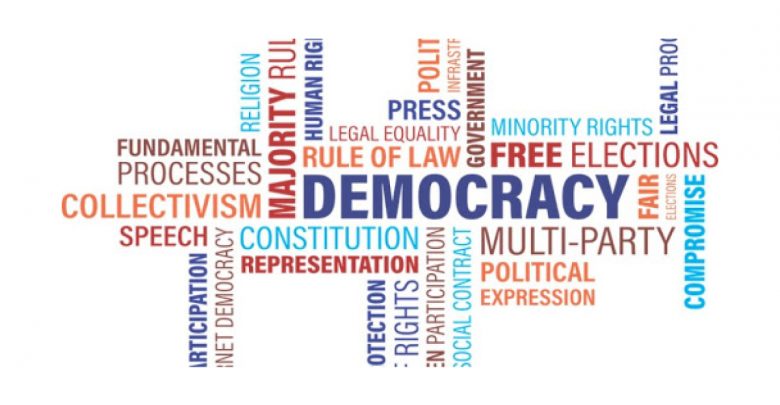Political Campaign Financing Pros Cons
Explore the advantages and disadvantages of political campaign financing. Get an unbiased perspective on campaign funding issues.

Public Financing of Political Campaigns: Balancing Democracy's Scales
The financing of political campaigns is a critical element of any democratic society. It determines the reach and impact of political messages, shapes the competitiveness of elections, and influences the level of accountability expected from elected officials. One approach to mitigate the influence of private interests on political campaigns is public financing. This method seeks to level the playing field by providing candidates with public funds rather than relying solely on private donations. In this article, we will explore the potential benefits and drawbacks of public financing of political campaigns.
Benefits of Public Financing
Reduced Influence of Special Interests: One of the primary advantages of public financing is that it reduces the disproportionate influence of wealthy donors and special interest groups. When candidates rely on private donations, they may feel indebted to their contributors, potentially compromising their ability to represent the broader public interest. Public financing can help counteract this influence by providing candidates with a stable and predictable source of funding.
Enhanced Accessibility: Public financing can make political participation more accessible to a diverse range of candidates. Candidates from underrepresented backgrounds, including minorities, women, and those without personal wealth or powerful connections, are often at a disadvantage in fundraising. Public financing levels the playing field, allowing a wider range of voices to be heard and increasing the diversity of political representation.
Increased Competition: Public financing can encourage more candidates to enter the political arena. When candidates know they have access to a baseline level of funding, they may be more inclined to run for office, which can lead to more competitive elections. Greater competition can invigorate the democratic process by ensuring that voters have more choices and options for representation.
Greater Transparency: Public financing programs often come with stringent disclosure requirements. This transparency can help voters understand where candidates' funding comes from and whether they are beholden to specific interests. A well-regulated public financing system can improve the overall transparency and accountability of the political process.
Less Time Spent Fundraising: Candidates in privately financed campaigns spend a significant amount of their time fundraising. Public financing allows candidates to spend more time engaging with constituents and focusing on policy issues rather than courting donors. This can lead to better-informed and more dedicated elected officials.
Drawbacks of Public Financing
Cost to Taxpayers: Implementing a public financing system can be expensive, as it relies on taxpayer dollars to fund political campaigns. Critics argue that this money could be better spent on other essential public services such as education, healthcare, or infrastructure.
Challenges in Determining Eligibility: Defining the criteria for candidates' eligibility for public funds can be complex and contentious. Striking the right balance between making public financing accessible to a broad range of candidates while preventing misuse of public funds can be a difficult task.
Limits on Free Speech: Some argue that public financing can infringe on candidates' freedom of speech. They contend that limiting private donations limits individuals' ability to support candidates and causes they believe in, potentially curtailing political expression.
Vulnerability to Political Manipulation: Public financing programs can be vulnerable to political manipulation and changes in government priorities. Funding levels, eligibility criteria, and program structures can be altered to favor one party or group over another, potentially undermining the program's effectiveness.
Effectiveness in Reducing Influence: Critics also question whether public financing truly reduces the influence of money in politics. While it can mitigate the role of private donations, it does not eliminate them entirely. Wealthy candidates can still use personal funds to boost their campaigns, and super PACs can operate independently, injecting large sums of money into elections.
The Future of Public Financing
As societies grapple with the complexities of public financing, several key considerations will shape its future:
Reforming Existing Systems: Many countries with public financing systems continually reassess and reform their programs to address shortcomings. This might involve adjusting funding levels, eligibility criteria, or introducing stronger enforcement mechanisms to prevent misuse of funds. Ongoing evaluation and adaptation are essential to maintain the program's effectiveness.
Combining Public and Private Financing: Some advocate for a mixed model that combines public financing with limited private donations. This approach aims to strike a balance between reducing the influence of private interests and preserving free speech rights. Such hybrid systems require careful regulation to ensure that private donations do not unduly sway elections.
Exploring Innovative Funding Sources: In the digital age, exploring new funding sources has become increasingly important. Crowdfunding, for example, has emerged as a way for candidates to receive small contributions from a broad base of supporters. Innovative solutions like these can complement traditional public financing mechanisms.
Global Collaboration: As the influence of money in politics extends beyond national borders, there is growing interest in international collaboration to address this issue. Sharing best practices and coordinating efforts can help reduce the impact of foreign money on domestic elections.
Enhancing Transparency: Strengthening transparency measures is crucial. Public financing programs should require detailed disclosure of all sources of funding, including any in-kind contributions. Transparent reporting can help identify potential abuses and maintain public trust in the system.
Educating the Public: Public awareness and engagement are vital components of any campaign finance reform effort. Educating citizens about the benefits and drawbacks of public financing, as well as the broader implications for democracy, can foster informed public debate and support for meaningful reforms.
Addressing Constitutional Challenges: In some countries, public financing programs face legal challenges on constitutional grounds, particularly regarding free speech. Courts often have to weigh the public interest in reducing the influence of money in politics against individuals' rights to contribute to political causes. Striking the right balance will remain a central concern.
Ensuring Program Sustainability: The long-term sustainability of public financing programs hinges on maintaining public support. Convincing taxpayers that their money is well spent on promoting a fair and transparent political system is essential to ensuring program longevity.
Public financing of political campaigns is a complex and multifaceted issue. While it offers several benefits, including reducing the influence of special interests, enhancing accessibility, promoting competition, and increasing transparency, it is not without its drawbacks, such as the cost to taxpayers and concerns about free speech.
The future of public financing will depend on the ability of societies to navigate these challenges effectively. Striking the right balance between mitigating the undue influence of money in politics and preserving individual freedoms is an ongoing task that requires thoughtful consideration and adaptation. As democratic societies evolve, so too must their campaign finance systems to ensure the integrity and fairness of their electoral processes. Ultimately, the success of public financing will be measured by its capacity to strengthen democracy and promote the representation of diverse voices in government.
What's Your Reaction?
















